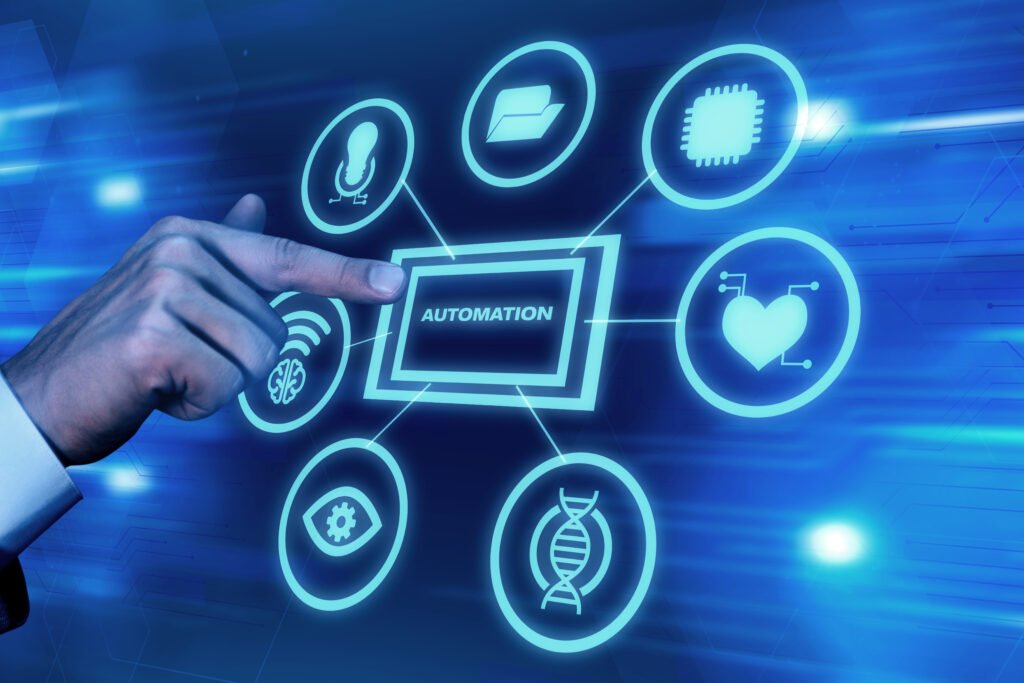In today’s fast-paced world, automation has become an integral part of our daily lives, simplifying tasks, enhancing productivity, and improving the quality of life. From the moment we wake up to the time we go to bed, automation plays a crucial role in various aspects of our routine. This article delves into the profound impact of automation on everyday life, exploring its applications, benefits, and the future it holds.

The Evolution of Automation
Historical Background
Automation is not a new concept. Its roots can be traced back to ancient times when humans devised simple machines to ease their work. However, the real revolution began during the Industrial Age with the advent of mechanization. The introduction of assembly lines and automated machinery transformed industries, leading to mass production and increased efficiency.
Modern-Day Automation
In the contemporary world, automation has transcended beyond factories and industrial settings. It has permeated various domains, including homes, healthcare, transportation, and communication. Modern automation technologies leverage artificial intelligence (AI), machine learning, and the Internet of Things (IoT) to create intelligent systems that can perform tasks with minimal human intervention.
Automation in Home Management
Smart Homes
The concept of smart homes epitomizes the application of automation in our personal spaces. Smart homes are equipped with interconnected devices that can be controlled remotely or programmed to operate autonomously. Examples include:
- Smart Thermostats: Devices like the Nest Thermostat learn your schedule and preferences, adjusting the temperature to optimize comfort and energy efficiency.
- Automated Lighting: Smart bulbs and lighting systems can be scheduled to turn on/off or dim based on the time of day or occupancy, enhancing convenience and saving energy.
- Voice-Activated Assistants: AI-powered assistants like Amazon Alexa and Google Assistant can control various smart devices, answer queries, and even order groceries with simple voice commands.
Home Security
Automation has significantly improved home security systems, offering features such as:
- Surveillance Cameras: Smart cameras provide real-time video feeds, motion detection, and alerts to your smartphone, ensuring you can monitor your home from anywhere.
- Automated Locks: Smart locks allow you to lock/unlock doors remotely and grant access to guests without physical keys.
- Intrusion Detection: Advanced systems can detect unusual activity and notify homeowners or authorities, providing an added layer of security.
Automation in Healthcare
Patient Care
Automation is revolutionizing healthcare, particularly in patient care and medical procedures. Key innovations include:
- Robotic Surgery: Surgical robots like the Da Vinci system enable minimally invasive procedures with greater precision, reducing recovery times and complications.
- Automated Diagnostics: AI algorithms analyze medical data to assist in diagnosing conditions accurately and swiftly.
- Remote Monitoring: Wearable devices and IoT-enabled sensors continuously monitor patients’ vital signs, allowing for timely interventions and personalized treatment plans.
Administrative Efficiency
Healthcare administration also benefits from automation through:
- Electronic Health Records (EHRs): Automated systems manage patient records, appointments, and billing, reducing paperwork and enhancing operational efficiency.
- Supply Chain Management: Automation streamlines inventory management and ensures the timely availability of medical supplies and medications.
Automation in Transportation
Self-Driving Cars
One of the most significant advancements in transportation automation is the development of autonomous vehicles. Companies like Tesla and Waymo are at the forefront of creating self-driving cars that promise to revolutionize how we travel. These vehicles utilize a combination of AI, sensors, and cameras to navigate and drive safely without human intervention.
Public Transportation
Automation is also enhancing public transportation systems through:
- Automated Trains and Buses: Many cities have implemented driverless trains and buses that operate on fixed routes, improving punctuality and reducing human error.
- Traffic Management: Smart traffic signals and monitoring systems optimize traffic flow, reduce congestion, and enhance road safety.
Automation in Communication
Virtual Assistants
AI-driven virtual assistants are becoming commonplace in both personal and professional settings. They can:
- Schedule Appointments: Virtual assistants manage calendars, set reminders, and schedule meetings efficiently.
- Customer Service: Many businesses use chatbots to handle customer inquiries, providing instant responses and improving customer satisfaction.
Content Creation
Automation tools are also transforming the way we create and manage content:
- Social Media Management: Tools like Hootsuite and Buffer automate the scheduling and posting of content across various social media platforms.
- Content Generation: AI-powered platforms can generate articles, reports, and even creative writing, saving time and resources for content creators.
The Future of Automation
Emerging Technologies
The future of automation is promising, with several emerging technologies poised to make even greater impacts:
- 5G Networks: The rollout of 5G will enhance connectivity, enabling faster and more reliable communication between automated systems.
- Quantum Computing: This technology has the potential to solve complex problems and process vast amounts of data at unprecedented speeds, further advancing automation capabilities.
- Advanced AI: Continued developments in AI will lead to more sophisticated and autonomous systems that can perform a wider range of tasks.
Ethical and Social Considerations
As automation becomes more prevalent, it is essential to address ethical and social implications. These include:
- Job Displacement: While automation can create new job opportunities, it may also render certain roles obsolete. It is crucial to invest in education and training to equip the workforce with skills for the future.
- Privacy Concerns: The increased use of interconnected devices raises concerns about data privacy and security. Implementing robust measures to protect personal information is paramount.
Sustainable Automation
Integrating sustainability into automation practices is vital for a greener future. Innovations such as energy-efficient devices, renewable energy integration, and eco-friendly manufacturing processes can mitigate environmental impacts and promote sustainable development.
In conclusion, automation is transforming everyday life in unprecedented ways. From smart homes and healthcare advancements to autonomous transportation and AI-driven communication, the benefits of automation are vast and far-reaching. As we continue to embrace these technologies, it is essential to consider ethical, social, and environmental implications to ensure a balanced and inclusive future.
